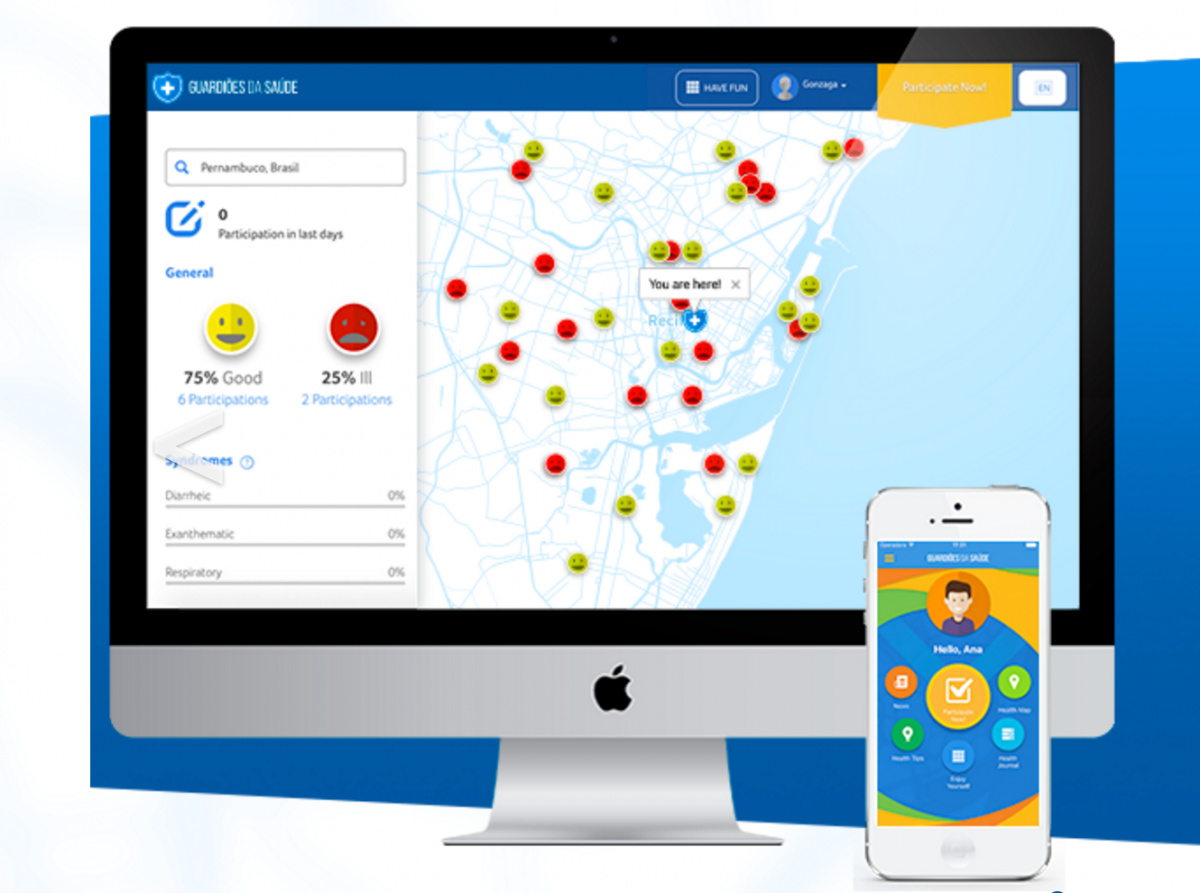 The Brazilian Ministry of Health has launched an app to monitor and report symptoms of Zika virus and other known epidemics in the country. The app, Guardioes de Saude (Gaurdians of Health) will give Brazilian residents and attendees of the 2016 Olympic and Paralympic Games – as well as the estimated 500,000 foreign visitors – the ability to help curb the spread of mosquito-transmitted diseases.
The Brazilian Ministry of Health has launched an app to monitor and report symptoms of Zika virus and other known epidemics in the country. The app, Guardioes de Saude (Gaurdians of Health) will give Brazilian residents and attendees of the 2016 Olympic and Paralympic Games – as well as the estimated 500,000 foreign visitors – the ability to help curb the spread of mosquito-transmitted diseases.
The app will be accessible to smartphone users in seven languages, including Portuguese, English, French, Spanish, Russian, Arabic and Chinese. Guardioes de Saude will encourage users to indicate their health condition daily, reporting specific symptoms typical of known epidemics in the country, including respiratory issues, diarrhea and rashes. Consistent reporting will go to the Health Map function of the app, encouraging other users to exercise awareness in areas deemed critical. The government will then be able to detect and monitor these symptoms, hopefully anticipating and mitigating the spread of communicable diseases.
"The Guardioes da Saude mobile application is a resourceful tool for Brazilian and foreign citizens to share and disseminate information on health, making it an integral part of monitoring outbreaks, tracking potential spread and providing information to help people act," said Brazilian Minister of Health Ricardo Barros in a statement. "As an interactive and real-time tool, this app will help facilitate actions of public health services to identify and potentially contain public health events much faster."
The app is launched in partnership with the US-based Skoll Global Threats Fund, which uses crowd-sourced surveillance efforts for mass events to collect information about the risk of disease transmission. It is based on a similar app called Saude na Copa, which was launched successfully during the 2014 FIFA World Cup.
This marks the second big launch for an app designed to help with surveillance of the Zika virus this year. The first was from the World Health Organization in March.















